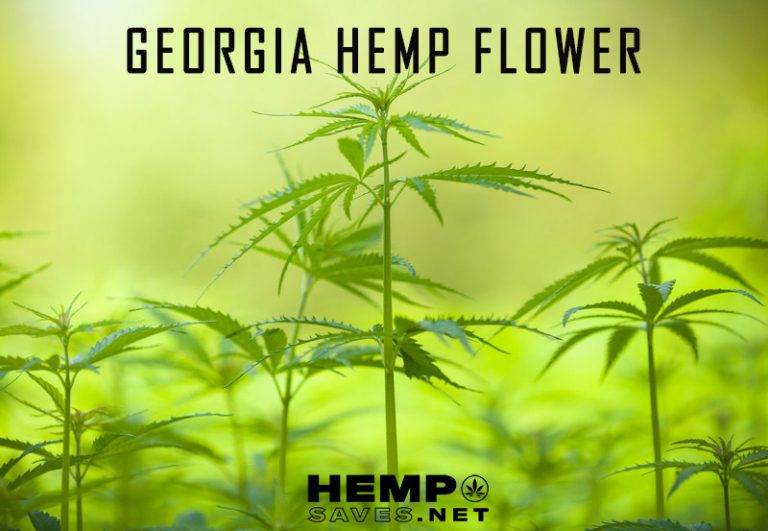Recent Changes To Georgia Hemp Laws: What Consumers Need To Know

Table of Contents
Understanding the Legal Definition of Hemp in Georgia
Understanding the legal definition of hemp is paramount. In Georgia, hemp is defined as the plant Cannabis sativa L. and any part of that plant, including the seeds thereof, and all derivatives, extracts, cannabinoids, isomers, acids, salts, and salts of isomers, whether growing or not, with a delta-9 tetrahydrocannabinol (THC) concentration of not more than 0.3 percent on a dry weight basis. This is a crucial distinction; exceeding this 0.3% THC threshold classifies the plant as marijuana, which is subject to different, far stricter regulations.
It's important to differentiate between hemp and marijuana under Georgia law. While both originate from the Cannabis sativa L. plant, the key difference lies in the THC concentration. Marijuana, with its higher THC content, is illegal under Georgia law except for medicinal purposes under specific conditions. Hemp, on the other hand, is legal under state law as long as it adheres to the 0.3% THC limit.
This legal definition extends to various hemp derivatives, including:
- CBD (Cannabidiol): A non-psychoactive cannabinoid extracted from hemp, widely used in various products.
- Delta-8 THC: A naturally occurring isomer of THC found in hemp, with milder psychoactive effects than Delta-9 THC. Its legal status is subject to interpretation, so verify its compliance before purchase.
- Other Cannabinoids: Many other cannabinoids are present in hemp, each with potential benefits and legal implications. Always check the specific legal status of any product before purchasing it.
Key Points:
- Legal hemp in Georgia must contain no more than 0.3% Delta-9 THC by dry weight.
- CBD and other cannabinoids derived from hemp are legal in Georgia when derived from compliant hemp.
- Licensing is required for hemp cultivation and processing in Georgia.
New Regulations for Hemp Cultivation in Georgia
Recent changes to Georgia hemp cultivation regulations have significantly impacted hemp farmers. The licensing process has undergone revisions, including changes in application fees and required documentation. Furthermore, new regulations govern land use, specifically addressing where hemp can be cultivated and the necessary buffer zones from other properties. Stricter testing procedures are in place to ensure compliance with the 0.3% THC limit, with penalties for exceeding this limit now more stringent.
Key Changes:
- Increased licensing fees for hemp cultivation.
- More rigorous testing protocols for THC content.
- Stricter regulations on cultivation methods and land use.
- Heavier penalties for non-compliance, including potential license revocation and legal action.
Changes in the Sale and Distribution of Hemp Products in Georgia
The sale and distribution of hemp products in Georgia have also seen significant changes. Retailers selling hemp products, including CBD products, must now comply with updated labeling requirements that clearly state the product's contents and THC levels. Marketing and advertising of hemp products are also subject to stricter regulations, with restrictions on claims made about the product's health benefits.
Significant Updates:
- Mandatory labeling of CBD products with detailed information about their contents.
- Restrictions on health claims made in the marketing and advertising of hemp products.
- Changes in retail licensing procedures to align with stricter regulations.
- Potential restrictions on the sale of certain hemp-derived products depending on their composition and potential effects.
Navigating the Legal Landscape for Hemp Consumers in Georgia
As a consumer, it is crucial to be aware of these changes to ensure you are purchasing legal and safe hemp products. Always check product labels to confirm that the product's THC content is below the 0.3% legal limit and that all other required information is clearly displayed. Choose reputable retailers who prioritize transparency and can provide proof of third-party testing results.
Consumer Tips:
- Look for products with third-party lab testing results readily available.
- Be wary of exaggerated health claims.
- Report any suspected non-compliant products to the appropriate authorities.
- Understand your consumer rights and seek legal advice if necessary.
Conclusion
The changes to Georgia hemp laws significantly impact both consumers and businesses involved in the hemp industry. Understanding the legal definition of hemp, new cultivation regulations, and updated sales and distribution requirements is crucial for navigating this evolving landscape. By being informed and taking proactive steps to verify product legitimacy, consumers can ensure they are purchasing safe and compliant hemp products. Stay updated on the latest changes to Georgia hemp laws by regularly checking the official state website and consulting with legal professionals. Understanding Georgia hemp laws is crucial for safe and compliant consumption.

Featured Posts
-
 Analiz Isw Pozitsiya Putina Schodo Kompromisiv U Peremovinakh Z Ukrayinoyu
May 27, 2025
Analiz Isw Pozitsiya Putina Schodo Kompromisiv U Peremovinakh Z Ukrayinoyu
May 27, 2025 -
 Alien Earth Sxsw 2025 A Deep Dive Into 6 Possible Easter Eggs
May 27, 2025
Alien Earth Sxsw 2025 A Deep Dive Into 6 Possible Easter Eggs
May 27, 2025 -
 Watch Ghost Season 4 Finale Online Free Streaming Services Compared
May 27, 2025
Watch Ghost Season 4 Finale Online Free Streaming Services Compared
May 27, 2025 -
 Nebazhannya Putina Yti Na Kompromisi Z Ukrayinoyu Zvit Isw
May 27, 2025
Nebazhannya Putina Yti Na Kompromisi Z Ukrayinoyu Zvit Isw
May 27, 2025 -
 Mila Kunis 10 Best Performances Film And Television
May 27, 2025
Mila Kunis 10 Best Performances Film And Television
May 27, 2025
